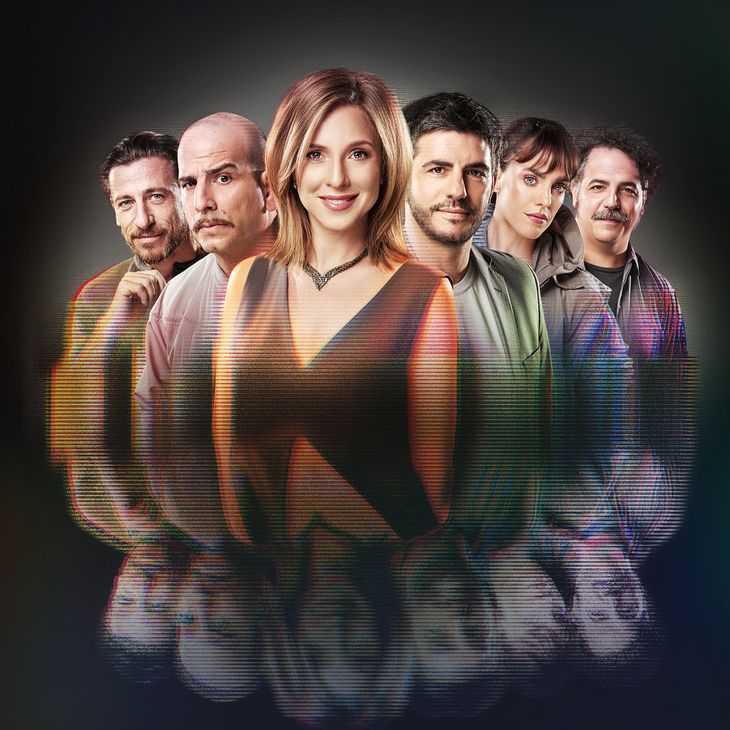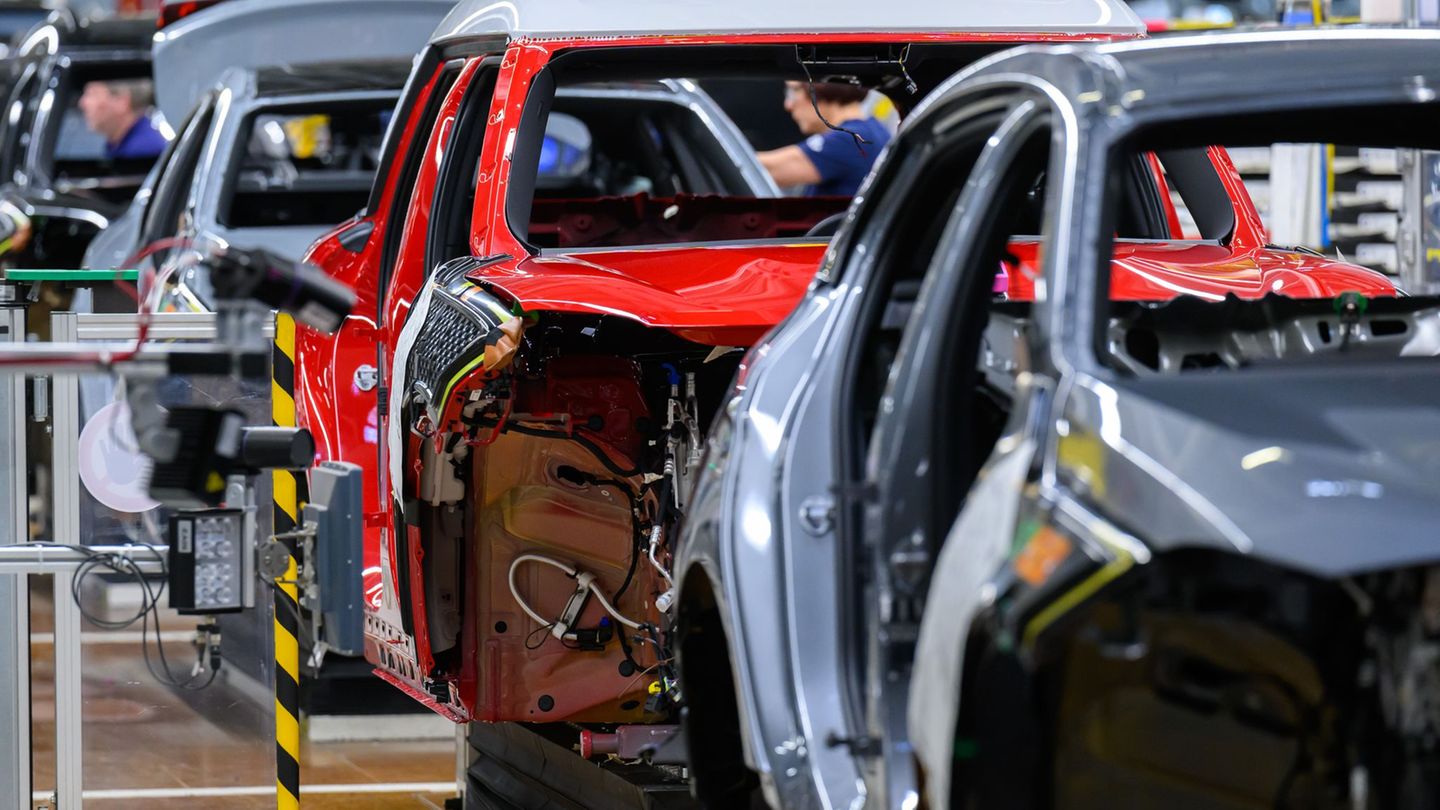“The viewer is used to looking for references, the platforms saturate us with references and recommendations. You start to see things and say I saw it, and instead of feeling that it is bad that a movie or series is similar to another, you take it as a virtue. The market did it. It is believed that a movie is better if it is one refe after another. When I write and they tell me “you have to see something” then I don’t see it so as not to contaminate myself”, says Matías Feldman, author and director of “Reverso,” which premieres Friday at Paseo La Plaza.
Its landing on the commercial circuit after the excellent “The Translation” and “The Tests” comes led by Carla Peterson, along with Marco Antonio Caponi, Nicolás García Hume, Diego Cremonesi, Emilia Claudeville and Juan Isola.
Carla Peterson She embodies a woman who experienced a very painful event and evades between denial and the metaverse, until she cannot distinguish the difference between reality and virtuality. Her friends and former partners at an art gallery enter that metaverse to try to help her, which leads to crazy situations. Within the metaverse anything can happen. But outside too. Everything is told, on purpose, without technological resources, it is pure theatricality, acting and play. We talk with Feldmann.
Journalist: What is the work about and what are the themes?
Matías Feldman: The topic is the metaverse, virtuality, hence the question, even philosophical, of what is real and what is not. The work raises that, how one constructs oneself in one’s existence and that is why new technologies and virtual reality are so influential, because what is done there is what we do in our existence, we create the fiction of our own life. The work does not go down the line as to whether this is good or bad and leads us to think that new generations do not divide reality from virtuality, everything is an experience. That’s why children tell something that happened to them in the metaverse with the same truth as if it had happened to them at school.
REVERSO_HOME_1500X1500.jpg
Q: How do you get along with technology, virtuality and the metaverse?
MF: I am analogous with everything, I dislike AI, I don’t want to enter or try or see, I don’t want to know, I am interested philosophically and politically but not to use it. It is shooting ourselves because we are generating things that will come very against us, AI is a great siren song of the market and capitalism, it generates the possibility that soon the large platforms will not need scriptwriters, actors, editors to generate even more Profits.
Q: What influences did you have when writing about the metaverse, perhaps “Black Mirror”, or science fiction classics like Asimov or Huxley?
MF: I am not a consumer of that series, it resonates with me, the themes are those, I do not feel that I am influenced by that for the work. From the metaverse I wanted to weigh what story could be told, what characters there could be, I built it from there, not from references. When I write and they tell me “you have to see something” then I don’t see it so as not to contaminate myself. I deliberately avoid not working with refs.
Q.: How did the project in La Plaza come about?
MF: He had presented “The Translation” at the Met, in La Plaza, and we had a very good relationship with the theater. I told them that I wanted to enter the commercial circuit and they told me “whenever you want.” It was like a macheo. The producer Pierpaolo Olcese from Galpón de Guevara is a good friend of Carla Peterson, we proposed it to him and we entered as a cooperative. It is a hybrid of production, they give us the room, some advertising issues but at the same time we work like in the independent.
Q: Why did you want to enter the commercial circuit?
MF: I need new challenges all the time. I felt like I had done a lot on the independent circuit and the public and I will continue, but I had not worked on the commercial and it started to catch my attention. When changing circuits, another type of spectator appears, accustomed to another theater, and the artistic challenge from symbolic production is interesting. In the independent and official work I always sought to reach the widest possible audience even if it was an experimental work, that is why “The Tests” worked, because it did not leave anyone out and everyone understood it. In the commercial, certain things are expected from a work but at the same time I aim to incorporate another type of theatricality. I am hopeful that it can work the same, there are ideas that must be reviewed and I do not intend to change certain formulas typical of that theater but I will also add others. I aim to reach a more massive audience, fight in that field and be able to open spaces there for Argentine creators.
REVERSO_GRUPAL_PRENSA_01.jpg

The author and director Matías Feldman with the cast.
Q: What are those formulas in the commercial?
MF: I don’t have a manual, but it is necessary that the public be able to understand what they are seeing, it must be able to generate certain identifications and empathy, that it be fun and that there be a series of necessary seasonings. One of the things that the commercial imposes is the duration, it lasts 1 hour and 10, the synthesis is very useful to me, it makes me rethink some things, it forces me to make myself clearer, the synthesis is creative, although the superabundance and length are also They are experiences that interest me, like “The Translation” in the Cervantes that lasted two hours.
Q: What is the reflection or question about virtuality?
MF: When you put on virtual reality glasses you enter a universe through an avatar, which is a virtual character that you create as you want, and in that metaverse there can be museums, virtual works for sale, you can go to recitals. of music that are only there, there is work, home and virtual partner. There is a generation that is doing that and it works because it is similar to what we do with our own lives. The difference with the real world is that perhaps a certain house or consumption would be inaccessible, but if they achieve it in virtuality, is it true? I am analogical and I maintain that what is true is the non-virtual, however philosophy took it upon itself to say that everything is a construction.
Source: Ambito
I am an author and journalist who has worked in the entertainment industry for over a decade. I currently work as a news editor at a major news website, and my focus is on covering the latest trends in entertainment. I also write occasional pieces for other outlets, and have authored two books about the entertainment industry.




